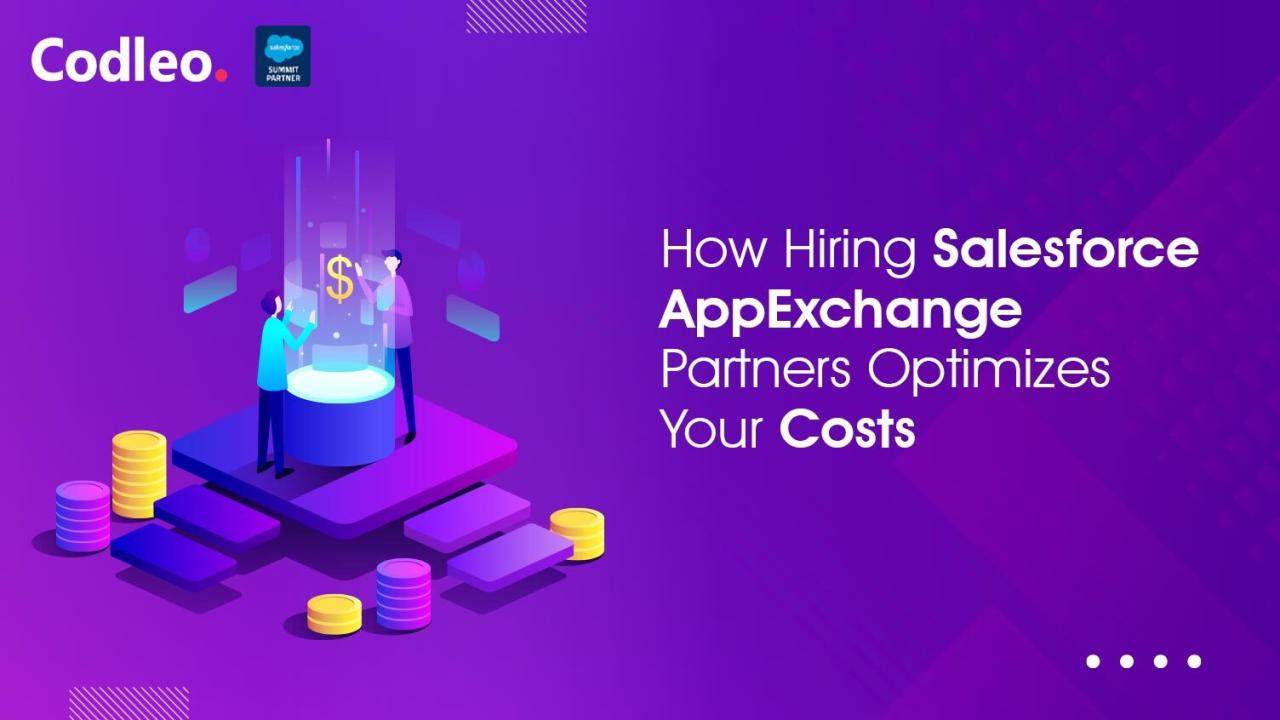Publish date:
HubSpot and Salesforce are both robust cloud-based CRM systems designed to unify various data sources, offering sales teams real-time access to information. These platforms enhance customer experience by streamlining communication, centralizing client files, and fostering better collaboration among team members.
Choosing between HubSpot and Salesforce can be challenging, so a detailed comparison of their features, pricing, and user reviews is essential. Additionally, we’ll explore monday CRM, an impressive alternative to these popular CRM solutions, to give you a comprehensive understanding of your options.
Salesforce vs. HubSpot at a glance
HubSpot began as a marketing tool and evolved into a CRM, whereas Salesforce started as a CRM and expanded its sales and marketing capabilities. Currently, HubSpot is renowned for its inbound marketing tool, while Salesforce is known for sales automation. Despite these origins, both platforms now offer a similar set of features:
-
Sales Process Automation: Streamline your sales activities
-
Sales Forecasting and Analytics: Gain insights into future sales
-
Customer Service Features: Enhance support for your customers
-
Contact Scoring: Prioritize leads effectively
-
VoIP Integration: Simplify communication
-
Marketing Features: Support your marketing efforts
Salesforce's offering is more modular compared to HubSpot's. For a fair comparison, I'll use Salesforce's Sales Cloud as a baseline, which can be supplemented with additional packages for specific needs like support and marketing. In the following sections, I will delve into the core differences between HubSpot and Salesforce, but here’s a quick overview of how some key features stack up.
HubSpot vs. Salesforce: Features
HubSpot and Salesforce offer numerous features beneficial to sales professionals, but they also have notable differences in functionality:
HubSpot Features
HubSpot serves 194,000 customers across 120 countries. Its Sales Hub is a comprehensive solution designed to attract leads and close deals, offering the following key capabilities:
-
Smart Prospecting: Engage in intelligent, contextualized conversations to convert prospects effectively.
-
AI-Powered Deal Management: Automation ensures a consistent process, equipping sellers with the necessary data and insights to maintain momentum in their pipeline.
-
Meeting Scheduling: Automate booking to avoid back-and-forth emails, seamlessly filling your calendar.
-
Document Tracking: Create a library of essential sales materials that your team can share and monitor.
Salesforce features
Salesforce Sales Cloud is a CRM platform that supports sales teams across various industries, from small businesses to large enterprises. It offers a variety of features, including:
-
Einstein 1: Guided selling and AI-driven deal insights predict future sales and enhance pipeline visibility.
-
Revenue Intelligence: Specialized analytics and insights provide sales teams with rapid data access to help close deals efficiently.
-
Partner Relationship Management: Evaluate and manage the performance of resellers, brokers, and distributors.
-
Sales Performance Management: Tools like location intelligence and territory visualization enable teams to allocate resources effectively and design sales processes based on customer data.
HubSpot vs. Salesforce: Integrations
HubSpot and Salesforce are both capable of serving as comprehensive solutions for sales and marketing activities. However, to ensure a smooth and continuous workflow, businesses often need to integrate these platforms with their existing tech stack. Fortunately, both HubSpot and Salesforce provide numerous integration options with various solutions. If you can't choose between the two, they even integrate seamlessly with each other.
HubSpot Integrations
HubSpot Connect supports integrations with over 1,000 apps and web services across categories like marketing, sales, productivity, customer service, finance, and commerce. For instance, you can sync Google Ads with HubSpot to gain better insights into your campaign ROI.
Salesforce Integrations
Salesforce leverages Mulesoft for its automation and integration needs, offering connectivity solutions for a wide range of applications, including communication, document sharing, contract signing, finance, and development tools. For example, sales representatives can connect MailChimp with Salesforce to streamline the management of their email lists and contact records.
HubSpot vs. Salesforce: Ease of Use
For busy sales professionals, integrating a new platform into their workflow needs to be seamless, allowing them to quickly see its benefits without a steep learning curve.
HubSpot Ease of Use
HubSpot is praised for its user-friendly interface, described as "smooth and easy" by users on G2. The basic free version is intuitive, with additional features becoming available as you upgrade through the pricing plans. Overall, G2 users rate HubSpot 8.7 out of 10 for ease of use.
Salesforce Ease of Use
Salesforce receives a slightly lower ease-of-use score of 8.0 out of 10 from G2 users. While it is generally considered straightforward and streamlined, its high level of customization means it doesn’t offer the same immediate plug-and-play experience as HubSpot. However, many users appreciate the flexibility to tailor Salesforce to their specific needs.
HubSpot vs. Salesforce: Support
When implementing new software or encountering issues, users want reliable customer support that is easy to access and effective at resolving problems.
HubSpot Support
HubSpot provides varying levels of support based on the selected pricing plan:
-
Free Plan: Access to community support only
-
Starter Plan: Community, chat, and email support
-
Professional and Enterprise Plans: Community, chat, email, and phone support
Overall, HubSpot scores 8.6 out of 10 in the "Quality of Support" category according to G2 users.
Salesforce Support
Salesforce scores slightly lower, with an 8.0 out of 10 in the same category. Salesforce offers multiple support options, including help documentation, community support, and customer success plans.
-
Standard Success Plan: Self-guided learning materials for a DIY approach
-
Premier Success Plan: Exclusive coaching, personalized assessments, and 24/7/365 support
-
Signature Success Plan: Designated technical account manager, technical health reviews, proactive platform monitoring, and 24/7/365 support
HubSpot vs. Salesforce: Which Platform is Right for You?
Choosing between two comprehensive platforms can be challenging. The decision ultimately hinges on your budget, objectives, and desired features. Both platforms offer distinct advantages that could be ideal for your sales team.
-
Choose HubSpot if you're working with a limited budget and need a user-friendly, intuitive platform that requires minimal customization.
-
Choose Salesforce if you seek powerful AI capabilities and are prepared to invest time and resources into customizing the platform to suit your specific requirements.
If, after thorough research, neither platform seems to be the perfect fit, consider exploring alternatives like monday CRM, which boasts higher user ratings than both HubSpot and Salesforce.
At Codleo, we specialize in helping businesses navigate the complexities of CRM platforms to find the perfect fit for their unique needs. Whether you're leaning towards HubSpot, Salesforce, or another solution like monday CRM, our experts are here to guide you every step of the way.
Ready to find the best CRM for your business? Contact Codleo today for a personalized consultation and take the first step towards optimizing your sales and marketing processes.

















